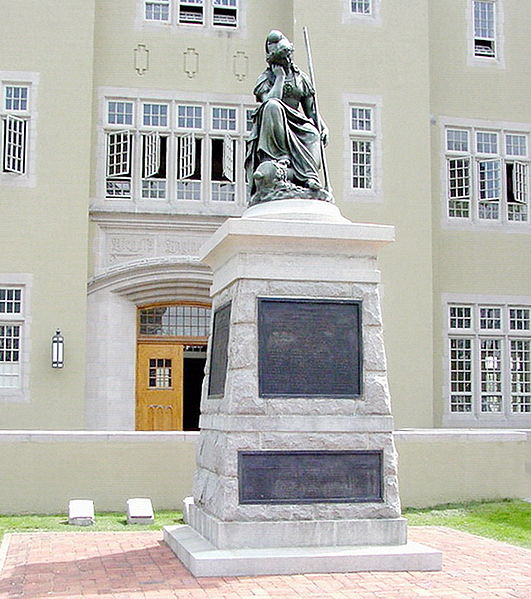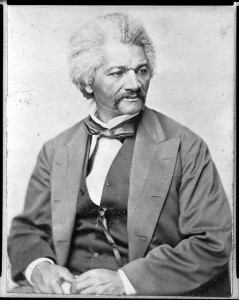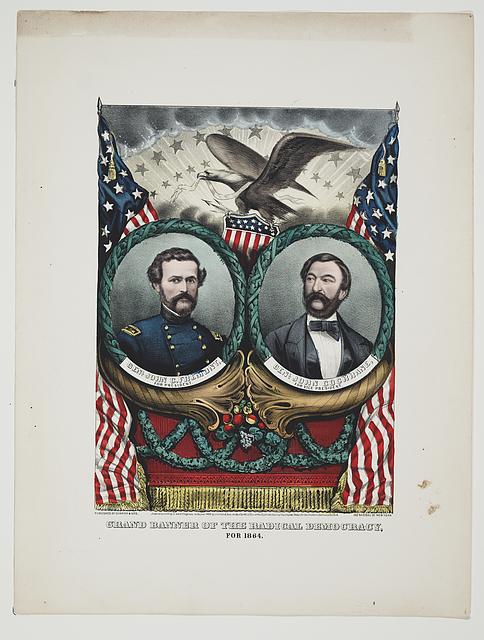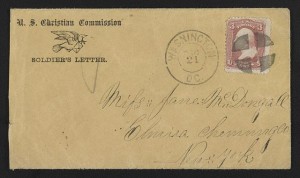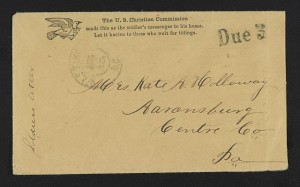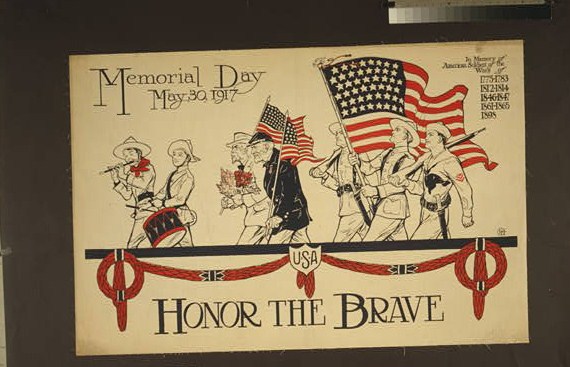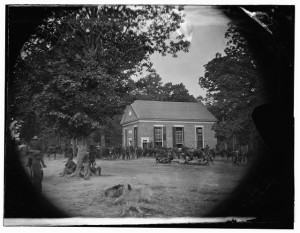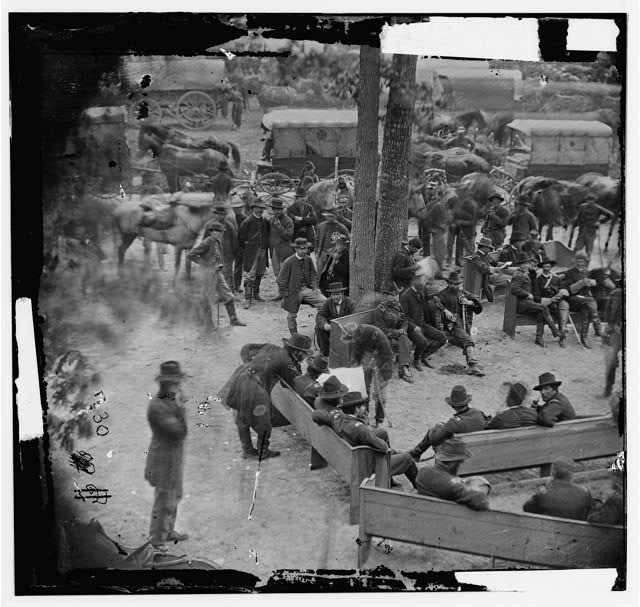
NYT 6-5-1864
On the evening of July 2, 1864 the Union troops on the front lines at Cold Harbor knew the assault ordered for the next morning was madness. They were close enough to see the strength of the rebel works. They knew they were going to get killed. Shelby Foote recounted [] the scene that one of General Grant’s aides, Lieutenant Colonel Horace Porter witnessed in the federal camps the evening of July 2nd. Porter said that he “found that the men were calmly writing their names and home addresses on slips of paper and pinning them on the back of their coats, so that their bodies might be recognized and their fate made known to their families at home.” Mr. Foote added:
Some went even further in their gloom. A blood-stained diary, salvaged from the pocket of a dead man later picked up on the field, had this grisly final entry: “June 3. Cold Harbor. I was killed.”
Here are a couple reports from the June 3rd battlefield.
From the Richmond Daily Dispatch June 4, 1864:
The war News — heavy fighting all along the lines — the enemy every where repulsed with great slaughter.
Yesterday was a day of excitement in the city. At a very early hour of the morning our inhabitants were aroused from their slumbers by heavy and incessant reports of artillery, which seemed to extend from the right to the left of our line. As usual, many rumors were in circulation during the day, but everything subsided towards evening under a knowledge of the fact that the Confederate arms were everywhere victori[ous]. Below we give a summary of recent operations on the lines. …
[from our own correspondent.]
Army of Northern Virginia,
Battle-Field of Cold Harbor,
June 3d-4 P. M.
General Early, commanding Ewell’s corps’ attacked the enemy’s right yesterday afternoon, and drove him with great slaughter out of his works, suffering but slight loss himself. Among his killed was the brave Gen. Doles, of Georgia.
At the same time, Breckinridge, on the right, supported by Wilcox, attacked the enemy on Turkey Hill, and drove them some distance, thus securing an important position.
Skirmishing and picket firing all night.
This morning at daylight the enemy assaulted Anderson’s corps (Longstreet’s) in the centre with great violence; also, Breckinridge’s and Hoke’s positions. He renewed the assault seven times against Fields and Kershaw, or Anderson’s corps.–He was beaten back each time with a loss that has no parallel, except at Spotsylvania Court-House. Indeed, the battle is but a repetition of that at Spotsylvania, with this important difference: Our own loss is almost incredibly small. Anderson’s loss, including Hoke’s, will not reach 500.
The enemy assaulted Early also, but only once, and was repulsed with great loss.
The enemy gained a salient in Breckinridge’s front, and held it for a few minutes, but Finnegan’s Floridians swept them back like a whirlwind. Our troops generally never fought better.
The enemy was repulsed at all points by 10 o’clock, since which time there has been heavy skirmishing only.
We had the ground on the enemy, to such an extent, indeed, that he could bring but little of his artillery to play. Our loss it, prisoners very slight, and we took but few.
I regret that my engagements are such that it will be impossible for me to continue my correspondence. This will be but little loss to you, however, as you already have a very faithful correspondent in the field. Besides, I hope the campaign of 1864, and the war itself, is fact drawing to a close.
Sallust.
In the North, even the Secretary of War was not going to take general Grant’s word for the Union losses, as Stanton telegraphed the news to general Dix in New York. From The New-York Times June 5, 1864:
BEFORE RICHMOND.; A BATTLE ON FRIDAY. THE REBEL LINES ASSAULTED. The Enemy Driven Within Their Intrenchments. The Ground Gained Held by Our Troops. THREE HUNDRED PRISONERS TAKEN. OUR LOSS ABOUT THREE THOUSAND. …
WASHINGTON, June 4, 1864.
To Major-Gen. Dix:
Dispatches from Gen. GRANT’S headquarters, dated 3 o’clock yesterday, have just been received. No operations took place on Thursday. Yesterday, at 4:30 o’clock A.M., Gen. GRANT made an assault on the enemy’s lines, of which he makes the following report:
“We assaulted at 4:30 A.M., driving the enemy within his intrenchments at all points, but without gaining any decisive advantage. Our troops now occupy a position close to the enemy, some places within fifty yards, and are remaining. Our loss was not severe, nor do I suppose the enemy to have lost heavily. We captured over three hundred prisoners, mostly from BRECKINRIDGE.”
Another later official report, not from Gen. GRANT, estimates the number of our killed and wounded at about three thousand. The following officers are among the killed:
Col. HASKELL, Thirty-sixth Wisconsin.
Col. PORTER, Eighth New-York Heavy Artillery.
Col. MORRIS, Sixty-sixth New-York.
Among the wounded are Gen. R.O. TYLER — seriously — will probably lose a foot; Col. MCMAHON, One Hundred and Sixty-fourth New-York; Col. BYRNES, Twenty-eighth Massachusetts — probably mortally; and Col. BROOKE, Fifty-third Pennsylvania.
EDWIN M. STANTON,
Secretary of War. …
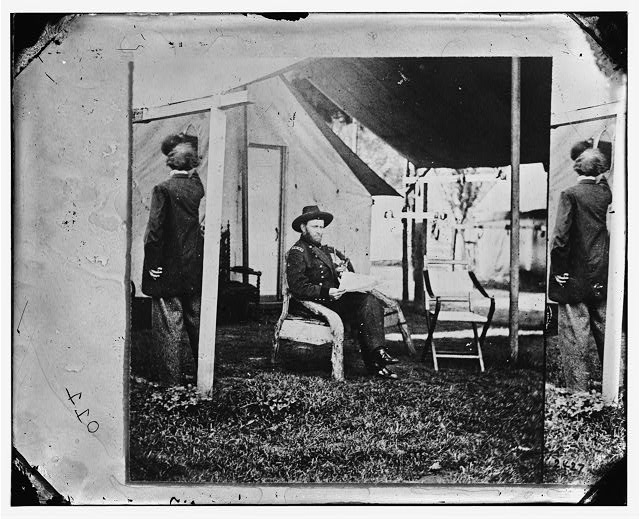
General Grant to the front? (headquarters at Cold harbor sometime in June 1864)

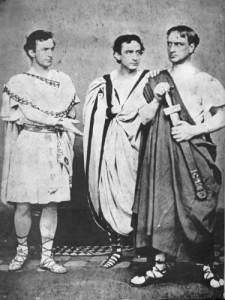
![Civil War envelope showing Columbia with American flag bearing message "For the Union" and state seal of Maryland (N.Y. : C. Magnus, 12 Frankfort St. ; [between 1861 and 1865]; LOC: LC-DIG-ppmsca-26468)](https://www.bluegrayreview.com/wp-content/uploads/2014/06/26468r.jpg)





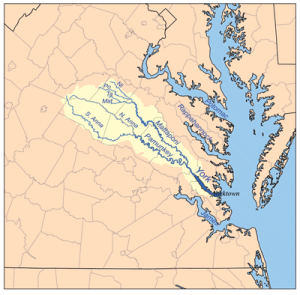
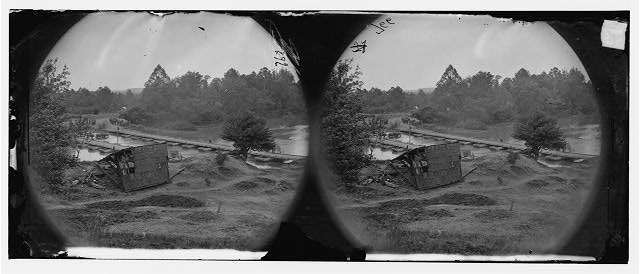
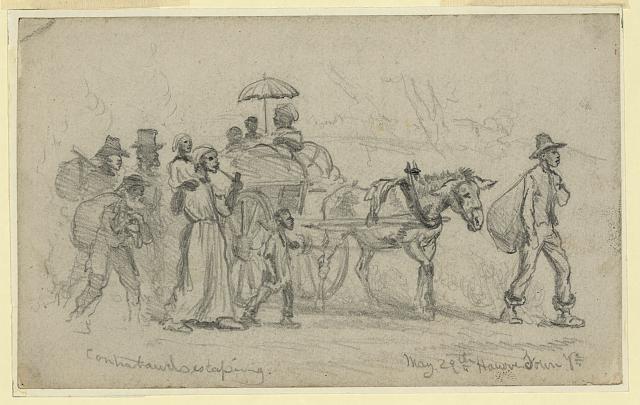
![[Illustrated Civil War "Union Envelopes"]: Rebel arms of Virginia (between 1861 and 1865; LOC: LC-USZ62-53595)](https://www.bluegrayreview.com/wp-content/uploads/2014/05/3b01565r-300x167.jpg)
